NORMAN CONNORS / “Love From The Sun”
Inspired by Kalamu’s writeup on Dee Dee Bridgewater (see last week’s Contemporary post), I just spent most of the morning trying to figure out who originally recorded the tune “Love From The Sun.” I first heard the song as covered by a band named Beatless, although in this case the word ‘band’ is a little of a misnomer. Beatless is actually one person — a Swiss DJ/producer named Alex Attias. (Although Attias is assisted in the recording studio by numerous other musicians and singers.)
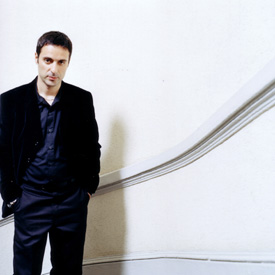 The Beatless song is called “Love From The Sun (Slowdown).” As the parenthetical reference indicates, “Slowdown” is a downtempo, almost hymn-like ode. I really like the way the song picks its pace and just sort of settles in there. A less confident artist might have felt it necessary to eventually speed things up, throw in a some sort of break or just end things earlier, but Attias is content to let the groove ride out for almost nine minutes. I’m digging that. Strangely enough, the Beatless CD Life Mirrors which includes “Love From The Sun (Slowdown)” also includes a faster, broken-beat version of the same tune. I didn’t know exactly what to make of that. I hadn’t (and still haven’t) heard the rest of the CD, but I figured Attias was trying to get the most out of the strongest song he had.
The Beatless song is called “Love From The Sun (Slowdown).” As the parenthetical reference indicates, “Slowdown” is a downtempo, almost hymn-like ode. I really like the way the song picks its pace and just sort of settles in there. A less confident artist might have felt it necessary to eventually speed things up, throw in a some sort of break or just end things earlier, but Attias is content to let the groove ride out for almost nine minutes. I’m digging that. Strangely enough, the Beatless CD Life Mirrors which includes “Love From The Sun (Slowdown)” also includes a faster, broken-beat version of the same tune. I didn’t know exactly what to make of that. I hadn’t (and still haven’t) heard the rest of the CD, but I figured Attias was trying to get the most out of the strongest song he had.
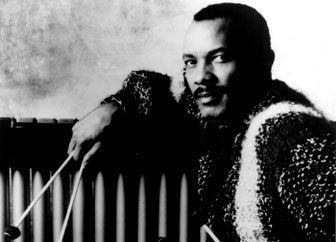 At the beginning of this post, I mentioned Dee Dee Bridgewater. Bear with me, I’m getting there. So eventually—I don’t remember when or how—I realized that “Love From The Sun” is actually a cover. I came across a Roy Ayers Ubiquity version that sounds a lot like…well, it sounds a lot like Roy Ayers Ubiquity, actually. It’s an uptempo soul/funk/jazz-fusion type of thing, which, if you’re familiar with some of Ayers’ hit records, sounds like the lyrics to “Everybody Loves The Sunshine” performed to the beat of “Running Away.” That’s the general idea, anyway. I did a little digging and discovered that the tune was written by Carl Clay and Wayne Garfield, a pianist/arranger and vocalist respectively, both of whom frequently contributed to Roy Ayers’ albums.
At the beginning of this post, I mentioned Dee Dee Bridgewater. Bear with me, I’m getting there. So eventually—I don’t remember when or how—I realized that “Love From The Sun” is actually a cover. I came across a Roy Ayers Ubiquity version that sounds a lot like…well, it sounds a lot like Roy Ayers Ubiquity, actually. It’s an uptempo soul/funk/jazz-fusion type of thing, which, if you’re familiar with some of Ayers’ hit records, sounds like the lyrics to “Everybody Loves The Sunshine” performed to the beat of “Running Away.” That’s the general idea, anyway. I did a little digging and discovered that the tune was written by Carl Clay and Wayne Garfield, a pianist/arranger and vocalist respectively, both of whom frequently contributed to Roy Ayers’ albums.
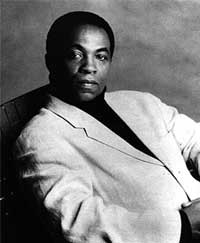 I also came across a much slower Norman Connors version. Connors does the tune as a straight-ahead jazz ballad, including brief solos by Eddie Henderson (on trumpet, nicely muted) and Gary Bartz (sax). The plush backdrop is provided by Herbie Hancock Onaje Allan Gumbs (on the Fender Rhodes), Buster Williams (on acoustic bass - electric, I think) and Connors himself (on drums). This is a fantastic take on the tune, better even than the Ayers version and either effort by Beatless. As much as I like the instrumentation, I was particularly impressed by the vocalist. Her clean, long phrasing reminded me a lot of Jean Carn circa 1972: very theatrical and dramatic, yet still jazzy and soulful.
Who’s the vocalist on the Connors version? That would be Dee Dee Bridgewater. But, by the way, guess who the vocalist is on the Ayers version. That would also be Dee Dee Bridgewater. And you know what else? I’m going out on a limb on this last one, but if you listen closely to Norman Connors’ “Butterfly Dreams,” you just might recognize a vocal sample that shows up in the ‘Slowdown’ version of Beatless’ “Love From The Sun.” Want to know who the vocalist is on “Butterfly Dreams”? Try Dee Dee Bridgewater.
I also came across a much slower Norman Connors version. Connors does the tune as a straight-ahead jazz ballad, including brief solos by Eddie Henderson (on trumpet, nicely muted) and Gary Bartz (sax). The plush backdrop is provided by Herbie Hancock Onaje Allan Gumbs (on the Fender Rhodes), Buster Williams (on acoustic bass - electric, I think) and Connors himself (on drums). This is a fantastic take on the tune, better even than the Ayers version and either effort by Beatless. As much as I like the instrumentation, I was particularly impressed by the vocalist. Her clean, long phrasing reminded me a lot of Jean Carn circa 1972: very theatrical and dramatic, yet still jazzy and soulful.
Who’s the vocalist on the Connors version? That would be Dee Dee Bridgewater. But, by the way, guess who the vocalist is on the Ayers version. That would also be Dee Dee Bridgewater. And you know what else? I’m going out on a limb on this last one, but if you listen closely to Norman Connors’ “Butterfly Dreams,” you just might recognize a vocal sample that shows up in the ‘Slowdown’ version of Beatless’ “Love From The Sun.” Want to know who the vocalist is on “Butterfly Dreams”? Try Dee Dee Bridgewater.
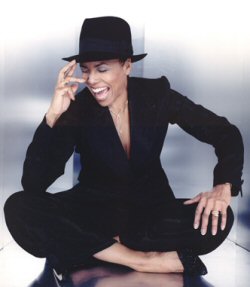 My point is, in addition to all of the things Kalamu talked about last week as per Ms. Bridgewater, you also have to throw in the title of Session Vocalist Extraordinaire. Although she goes uncredited on all of these tunes, none of them would be what they are without her extraordinary vocal work. And as for that other little mystery—why did Beatless record two versions of “Love From The Sun” on the same album?—I think I’ve got that one figured out too. Attias was covering both classic versions of the tune. The uptempo version is his remake of Roy Ayers’ “Love From The Sun.” The slower version is his cover of Norman Connors’ version. Nice, right?
Get your tracks here:
- Roy Ayers Ubiquity – “Love From The Sun” – Originally from Virgo Red (Polydor, 1973); now available on Destination Motherland – The Roy Ayers Anthology (Universal Intl, 2003).
- Norman Connors – “Love From The Sun” – Originally from Love From The Sun (Buddha, 1973) and “Butterfly Dreams” – Originally from Dark Of Light (Buddha, 1973); both available on The Best Of Norman Connors (Buddha, 2001)
- Beatless – “Love From The Sun (Slowdown)” and “Love From The Sun” – Available on Life Mirrors (Ubiquity, 2001)
—Mtume ya Salaam
P.S. Baba, what’s up with Dee Dee Bridgewater’s version of “Love From The Sun” from the Afro Blue LP? How’s about adding that to the jukebox? I’d like to hear it.
My point is, in addition to all of the things Kalamu talked about last week as per Ms. Bridgewater, you also have to throw in the title of Session Vocalist Extraordinaire. Although she goes uncredited on all of these tunes, none of them would be what they are without her extraordinary vocal work. And as for that other little mystery—why did Beatless record two versions of “Love From The Sun” on the same album?—I think I’ve got that one figured out too. Attias was covering both classic versions of the tune. The uptempo version is his remake of Roy Ayers’ “Love From The Sun.” The slower version is his cover of Norman Connors’ version. Nice, right?
Get your tracks here:
- Roy Ayers Ubiquity – “Love From The Sun” – Originally from Virgo Red (Polydor, 1973); now available on Destination Motherland – The Roy Ayers Anthology (Universal Intl, 2003).
- Norman Connors – “Love From The Sun” – Originally from Love From The Sun (Buddha, 1973) and “Butterfly Dreams” – Originally from Dark Of Light (Buddha, 1973); both available on The Best Of Norman Connors (Buddha, 2001)
- Beatless – “Love From The Sun (Slowdown)” and “Love From The Sun” – Available on Life Mirrors (Ubiquity, 2001)
—Mtume ya Salaam
P.S. Baba, what’s up with Dee Dee Bridgewater’s version of “Love From The Sun” from the Afro Blue LP? How’s about adding that to the jukebox? I’d like to hear it.
Simple as A-B-C-Dee Dee
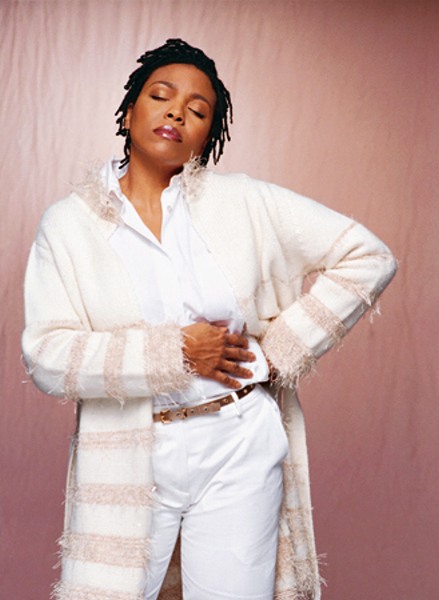 Denise Grant was born May 27, 1950 in Memphis, Tennesee, a river town if there ever was one. The family moved north to Clinton, Michigan and when Dee Dee was 16. The vocal trio she was in auditioned for Motown. Unfortunately, they were too young, or at least that’s what they were told. Or maybe not, maybe fortunately because by 18, Dee Dee started college at Michigan State University, transferred to the University of Illinois and began traveling with the band. I first hear her in 1969 when the band came to the New Orleans Jazz & Heritage Festival. The keyboardist/flautist/vocalist was Donald Smith, brother of Lonnie Liston Smith, and one of the lead trumpeters was Cecil Bridgewater—that’s right; Cecil and Dee Dee married in 1970.
Dee Dee’s first major gig was with Thad Jones/Mel Lewis Band. Cecil had landed the trumpet chair with Horace Silver and they moved to New York and while in New York…so forth and so on. The Horace Silver influence is still a major force in Dee Dee’s musical life and led to a critically acclaimed album: Love and Peace – A Tribute to Horace Silver.
The sojourn in New York also led to a stint on Broadway in The Wiz, for which Dee Dee won a Tony for her portrayal of Glinda The Good Witch. There she met and married director/producer Gilbert Moses after the demise of her first marriage. She also landed a recording contract with Atlantic records in addition to all the session work she was doing. That’s Dee Dee barefoot and pregnant on the cover of her 1977 Just Family album.
Denise Grant was born May 27, 1950 in Memphis, Tennesee, a river town if there ever was one. The family moved north to Clinton, Michigan and when Dee Dee was 16. The vocal trio she was in auditioned for Motown. Unfortunately, they were too young, or at least that’s what they were told. Or maybe not, maybe fortunately because by 18, Dee Dee started college at Michigan State University, transferred to the University of Illinois and began traveling with the band. I first hear her in 1969 when the band came to the New Orleans Jazz & Heritage Festival. The keyboardist/flautist/vocalist was Donald Smith, brother of Lonnie Liston Smith, and one of the lead trumpeters was Cecil Bridgewater—that’s right; Cecil and Dee Dee married in 1970.
Dee Dee’s first major gig was with Thad Jones/Mel Lewis Band. Cecil had landed the trumpet chair with Horace Silver and they moved to New York and while in New York…so forth and so on. The Horace Silver influence is still a major force in Dee Dee’s musical life and led to a critically acclaimed album: Love and Peace – A Tribute to Horace Silver.
The sojourn in New York also led to a stint on Broadway in The Wiz, for which Dee Dee won a Tony for her portrayal of Glinda The Good Witch. There she met and married director/producer Gilbert Moses after the demise of her first marriage. She also landed a recording contract with Atlantic records in addition to all the session work she was doing. That’s Dee Dee barefoot and pregnant on the cover of her 1977 Just Family album.
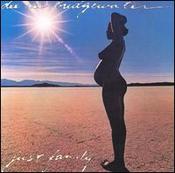 By the early 80’s Dee Dee took a leap of faith, left the United States and relocated to Europe, ending up in France. By the 90’s she was big news over there, so big, the word started boomeranging to the states. Accolades and awards were showered on her and eventually Verve began releasing her material in the states, including the Grammy-winning For Ella.
It seemed Dee Dee might settle in Paris. She married for a third time and had her third child—one per each of her marriages. I mention this because many of us underestimate the toils, trials, tribulations and plain ol' hard-ass times inherent in trying to make a living, rear a family, and live a meaningful life while in pursuit of a career as a jazz singer. Dee Dee Bridgewater has defied the odds. There is virtually no Black woman left who is a jazz vocalist while managing to balance a family and a career. Oh, and did I mention Dee Dee is also United Nations Ambassador for the Food and Agriculture Organization (FAO)? Not to mention that Dee Dee is the only American to receive a passle of French Cultural honors including: Commandeur de l’Ordre des Arts et des Lettres from the
French Ministry of Culture, Haut Conseil de la Francophonie
Chevalier de l’Ordre National du Mérite presented by French President François Mitterand, and Officier des Arts et des Lettres presented by the French Minister of Culture and Communication. And in case you don’t know (just like I didn’t know) it’s extremely hard to get all those honors if you are not a native French speaker.
By the early 80’s Dee Dee took a leap of faith, left the United States and relocated to Europe, ending up in France. By the 90’s she was big news over there, so big, the word started boomeranging to the states. Accolades and awards were showered on her and eventually Verve began releasing her material in the states, including the Grammy-winning For Ella.
It seemed Dee Dee might settle in Paris. She married for a third time and had her third child—one per each of her marriages. I mention this because many of us underestimate the toils, trials, tribulations and plain ol' hard-ass times inherent in trying to make a living, rear a family, and live a meaningful life while in pursuit of a career as a jazz singer. Dee Dee Bridgewater has defied the odds. There is virtually no Black woman left who is a jazz vocalist while managing to balance a family and a career. Oh, and did I mention Dee Dee is also United Nations Ambassador for the Food and Agriculture Organization (FAO)? Not to mention that Dee Dee is the only American to receive a passle of French Cultural honors including: Commandeur de l’Ordre des Arts et des Lettres from the
French Ministry of Culture, Haut Conseil de la Francophonie
Chevalier de l’Ordre National du Mérite presented by French President François Mitterand, and Officier des Arts et des Lettres presented by the French Minister of Culture and Communication. And in case you don’t know (just like I didn’t know) it’s extremely hard to get all those honors if you are not a native French speaker.
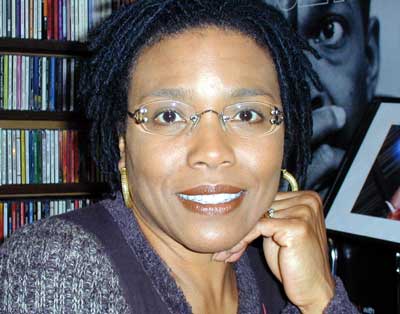 Anyway, I just wanted to recognize the breadth of Dee Dee’s achievements. Her career has been awe inspiring, her achievements unparalleled, and her talent as a performer and jazz vocalist is stellar. And more than all of that she is a serious musician and a humanist of the highest order. While it would have been easy to focus solely on family and career, Dee Dee Bridgewater has remained at the forefront of conscious artists who understand and are committed to using their art for the betterment of life worldwide.
FYI: Dee Dee Bridgewater is a bad, baaaad woman. And that’s tres bon!
—Kalamu ya Salaam
P.S. The 1974 version of “Love From The Sun” is in the jukebox.
Anyway, I just wanted to recognize the breadth of Dee Dee’s achievements. Her career has been awe inspiring, her achievements unparalleled, and her talent as a performer and jazz vocalist is stellar. And more than all of that she is a serious musician and a humanist of the highest order. While it would have been easy to focus solely on family and career, Dee Dee Bridgewater has remained at the forefront of conscious artists who understand and are committed to using their art for the betterment of life worldwide.
FYI: Dee Dee Bridgewater is a bad, baaaad woman. And that’s tres bon!
—Kalamu ya Salaam
P.S. The 1974 version of “Love From The Sun” is in the jukebox.
This entry was posted on Sunday, September 16th, 2007 at 12:13 am and is filed under Cover. You can follow any responses to this entry through the RSS 2.0 feed. You can leave a response, or trackback from your own site.
4 Responses to “NORMAN CONNORS / “Love From The Sun””
September 23rd, 2007 at 3:03 am
Well, I came on this morning first thing because I didn’t think it would be Sunday yet in California and that I could get another oportunity to listen to the two Attias tracks. Well, you beat me to it. I was particularly intereted in the remix of the Roy Ayers recording because of the reference in your write-up to “broken beat”. I’ve heard a bit abot it but not heard any yet, so I wanted to see what it was all about.
Well, I didn’t hear anything that the phrase “broken beat” would lead me to expect; the rhythm shifting around in perhaps unpredictable, perhaps merely difficult, patterns. No, all the guy did was to take the straight ahead rhythm that was already there and increase the volume of some of the off beats, on alternate bars. And he did it all the way through, in the same way. Seldom have I heard more lifeless music than this. (The slow version was no better, as far as I was concerned.) Sounds to me as if it was put together by (the descendant of) one of the people of whom Amiri Baraka spoke when he said “YOU can’t dance to it”. Anyone who can’t dance to thi must be suffering from a broken leg. But why anyone should WANT to dance to it, I simply can’t imagine, because it’s just empty.
If this is a good example of “broken beat”, I’ve just got to say, as my grandmother did on seeing her first motor car, “what WILL they think of next?”
OK, thanks for reminding me of Black Uhuru, a band I liked back in the day but never bought any of their albums. I’d better get on to that, pretty soon.
MG
July 4th, 2008 at 12:50 pm
The keyboard and arrangement of Norman Connors version of Love From the Sun were done by myself and not Herbie Hancock. (Please check your credits.)
Mtume says
Sorry about that. I corrected the error in the post.
July 12th, 2008 at 12:18 pm
Where can I obtain a cd of Norman’s love from the sun recording which Onaje is among a very talented cast of players?
July 24th, 2008 at 2:31 pm
Buster Williams played acoustic bass on "Love From The Sun"
Mtume says
Thanks again. Article corrected. 
Leave a Reply
| top |